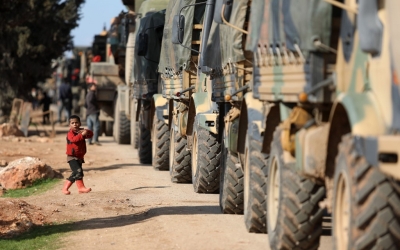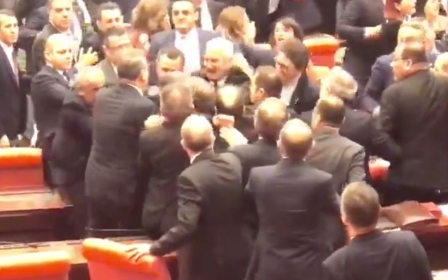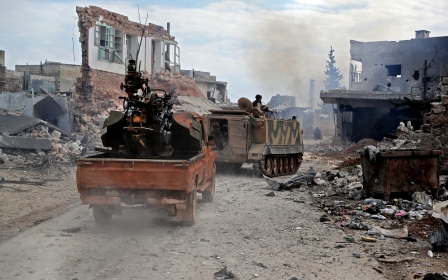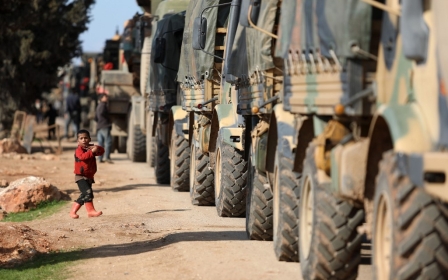Ceasefire brokered by Turkey and Russia takes effect in Syria's Idlib
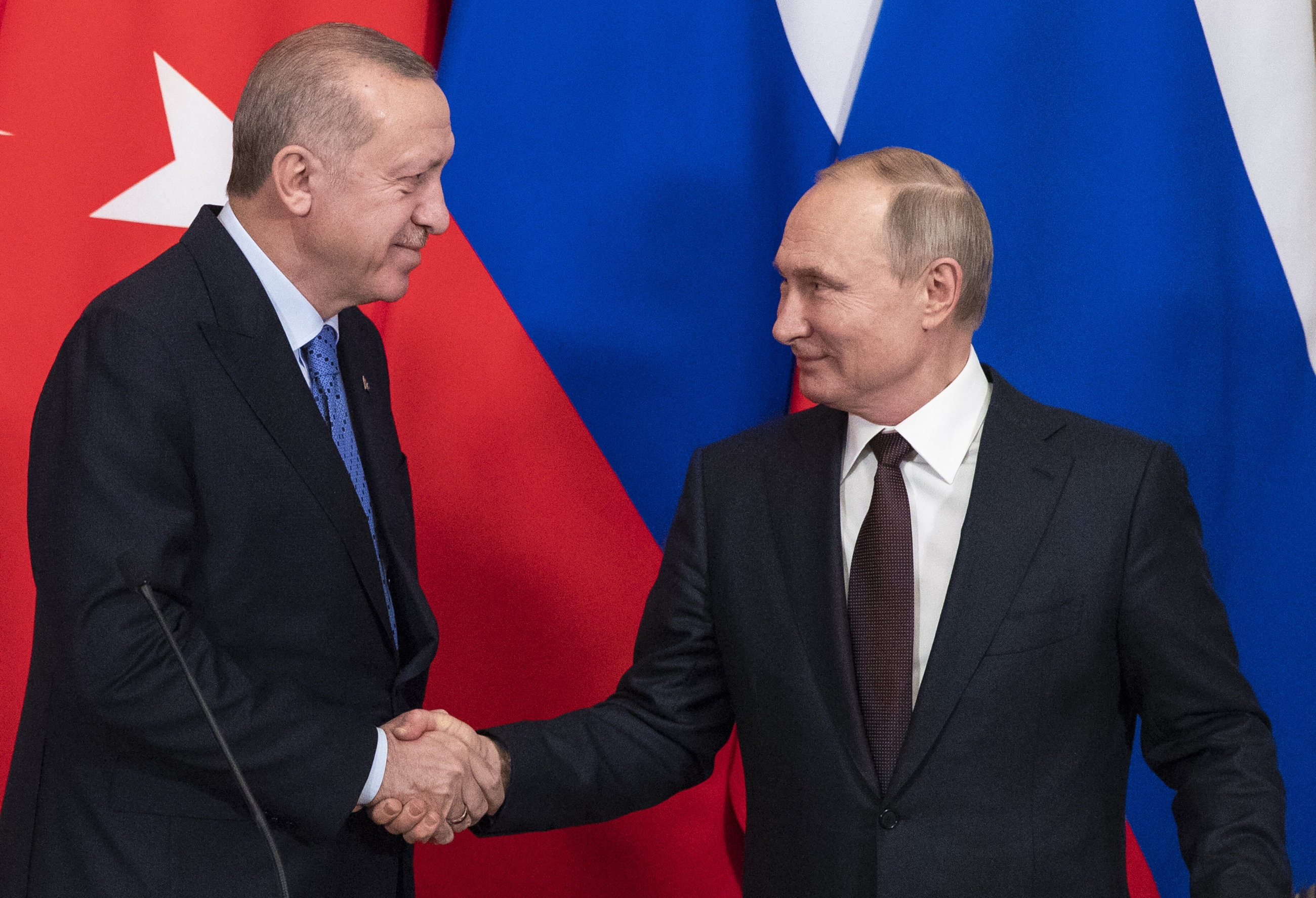
A military ceasefire has taken effect in Idlib, Syria's last rebel stronghold, after extensive talks between Turkish President Recep Tayyip Erdogan and his Russian counterpart Vladimir Putin.
Idlib has witnessed increased violence and bloodshed since December with nearly one million Syrians forced to flee their homes and seek safety near the Turkish border.
"At 00.01 tonight, as in, from midnight, the ceasefire will be put in place," Erdogan said on Thursday, following more than six hours of talks with Putin in Moscow.
According to the agreement, unveiled by Russian Foreign Minister Sergey Lavrov, Turkey and Russia agreed upon three points.
The countries agreed to cease all military actions along the line of contact in Idlib's de-escalation zone from 00:01 on 6 March.
They agreed to establish a six-kilometre-wide security corridor along the M4 highway connecting Latakia with northern Syria. They said their defence ministers would agree on the parameters of the corridor within a week.
And they agreed to establish joint Turkish-Russian patrols along the highway on 15 March, stretching from the Trumba settlement just west of the strategic town of Saraqeb, to the Ain al-Havr settlement.
Earlier this month, forces loyal to Syrian President Bashar al-Assad captured Saraqeb, which lies on the intersection of the M4 and M5 highways, one of many major urban areas to fall to Damascus since December.
The M4 highway connects Saraqeb with Latakia, while the M5, Syria's longest highway, connects Aleppo city to the capital Damascus and continues south to the Jordanian border.
'Turkey will not remain silent'
Turkey, which has the second-largest army in the transatlantic Nato alliance, entered the region in recent weeks to resist the Syrian government's advance on Idlib and avoid a wave of refugees at its southern border.
Turkey hosts about 3.6 million Syrian refugees and says it cannot handle more. To extract more funding and support from Europe over Idlib, Ankara said it would not abide by a 2016 deal in which it stopped migrants crossing into the European Union in return for billions of euros in aid.
The fighting has killed 60 Turkish troops since early February and raised the prospect of a direct clash between Russia and Turkey, which operate on opposing sides of the front lines.
Erdogan told reporters that Turkey would not "remain silent" to attacks by Syrian government forces, and warned Ankara would "retaliate with all its strength" despite the new ceasefire.
UN Secretary-General Antonio Guterres said he hoped the ceasefire would lead to an "immediate and lasting cessation of hostilities."
Guterres "hopes that this agreement will lead to an immediate and lasting cessation of hostilities that ensures the protection of civilians in northwest Syria, who have already endured enormous suffering," a statement said.
The war in Syria, now approaching its ninth year, has devastated much of the country. An estimated half a million people have been killed and millions have been forced to live as refugees.
Middle East Eye delivers independent and unrivalled coverage and analysis of the Middle East, North Africa and beyond. To learn more about republishing this content and the associated fees, please fill out this form. More about MEE can be found here.


